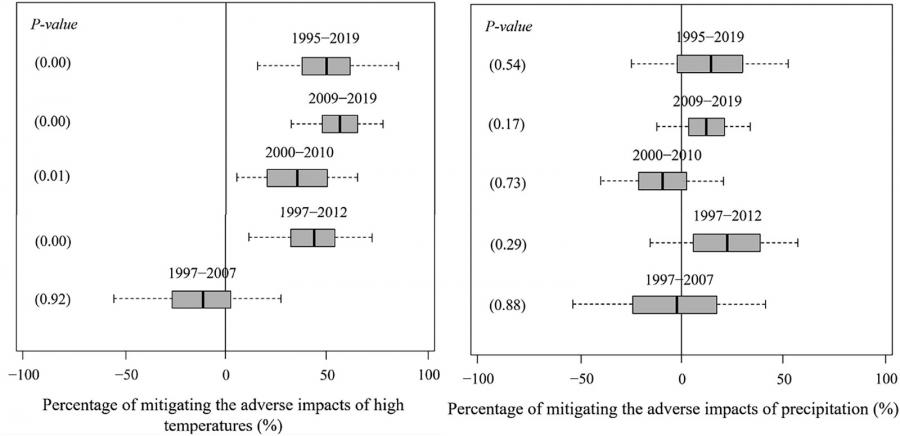
China's Grain Production: Adaptation Levels and Mechanisms to Climate Change
GA, UNITED STATES, June 23, 2025 /EINPresswire.com/ -- Using national rural data, this study finds that adaptive behaviors in China's grain production mitigate 52.5%–63.5% of high-temperature impacts. But they can't effectively reduce excessive precipitation impacts. Tech progress and input adjustments are key adaptation mechanisms.
The increasing risks of climate change have introduced numerous latent perils to China's food security and agricultural production, highlighting between the realities of climate change and the requirement for stable and high agricultural yields. In a study published in the KeAi journal China Economic Quarterly International, researchers Liu Dong, Feng Xiaolong, and Si Wei estimated the overall adaptation level and mechanisms of grain production to climate change in China.
"Adaptive behaviors have alleviated 52.5 %– 63.5 % of the adverse impacts of high temperatures, with rice and maize more adaptable than wheat,” explains Liu. “However, adaptive behavior has not effectively mitigated excessive precipitation impacts."
The researchers used national rural fixed observation points data, the long differences method, and a two-way fixed-effects model to systematically assess the adaptation level. “We found differences in adaptation levels among different crops,” shares Feng. “Rice and maize are more adaptable to high temperatures than wheat.”
Differences in adaptation levels were also identified. Grain production in the northern region is more adaptable to high temperatures than that in the southern region. "This suggests that though grain production in southern regions suffers less from high temperatures in the short term, it also shows a low adaptation level," adds Feng.
Technological progress, adaptation technology adoption, and input adjustments are found to be key adaptation mechanisms. For example, technological progress can mitigate 31.8 % of the adverse impacts of high temperatures on grain production. From a micro-household perspective, the adoption of conservation tillage can significantly mitigate the adverse impacts of high temperatures on grain yield per mu, especially for wheat and maize.
“We should recognize the severity of the adverse impacts of excessive precipitation on grain production and the urgent need to enhance the adaptation level,” says Si. “Improving agricultural infrastructure and water resource management is essential."
The researchers hope that their findings can provide valuable insights for improving and implementing national climate change adaptation strategies and policies, thereby enhancing the resilience of grain production to climate risks.
DOI
10.1016/j.ceqi.2025.03.001
Original Source URL
https://doi.org/10.1016/j.ceqi.2025.03.001
Funding information
This article was funded by the “China Agriculture Research System-Soybean(CARS-04-04A), the project of the National Natural Science Foundation of China titled “Research on Herdsmen's Behavioral Responses and Development Resilience to Extreme Climate Events: From the Perspective of Support Policies” (72373145), and the International (Regional) Cooperation and Exchange Project of the National Natural Science Foundation of China “Optimizing China's Agricultural Subsidies to Promote the Transformation of the Agricultural Food System in the Global Context” (72061147002).
Lucy Wang
BioDesign Research
email us here
Distribution channels: Agriculture, Farming & Forestry Industry, Science
Legal Disclaimer:
EIN Presswire provides this news content "as is" without warranty of any kind. We do not accept any responsibility or liability for the accuracy, content, images, videos, licenses, completeness, legality, or reliability of the information contained in this article. If you have any complaints or copyright issues related to this article, kindly contact the author above.
Submit your press release
